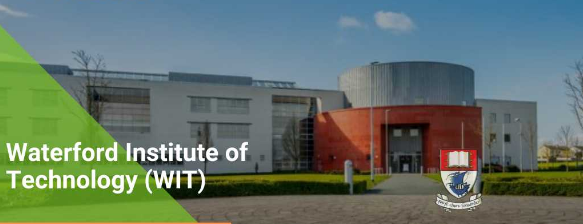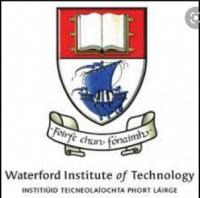Bachelor of Science (Honours) Computer Forensics and Security
What is the BSc (Hons) in Computer Forensics & Security?
The BSc (Hons) in Computer Forensics & Security is a four year honours degree course equipping graduates with the specialised skills and knowledge needed to secure, monitor and examine electronic crime scenes and digital environments. This is a computer science degree with a specialism in the securing, monitoring and investigating of computers, digital devices and data. It also covers programming, computer networks, operating systems and web technologies. It allows you to investigate, decode and decipher the digital world in which you live.
Why is Computer Forensics and Security important?
People generate vast amounts of data every day with each person leaving a digital footprint across the web. Your data is used by companies to sell you products and to see what you are interested in. Your data is also used by hacktivists, cyber criminal gangs and different states that are engaged in a cyberwar and information war with these companies and with each other. Data, in the 21st century, is more valuable than oil. You need to control and protect your data, and the data of others. Understanding this area allows you to protect everything in your life, such as family, friends, energy, money, transport, even the food and water you consume.
Just as a murder scene needs to be secured so too do electronic crime scenes. There are particular ways of securing evidence and students learn how to do this. Electronic crime scenes often involve child pornography, blackmail, financial fraud and data theft. Criminal prosecutors have used computer forensic evidence to form the backbone in murder cases and robberies through the use of technologies such as mobile phone forensics.
Computer forensics is the application of the scientific method to digital media in order to establish factual information for judicial review. This process often involves investigating computer systems to determine whether they are or have been used for illegal or unauthorised activities.
Campus Information
Cork Road
Intakes
- Jan
- July
- Sep
Application Processing Time in Days: 10
Minimum English Language Requirements
| English Level Description | IELTS (1.0 -9.0) | TOEFL IBT (0-120) | TOEFL CBT (0-300) | PTE (10-90) | |
|---|---|---|---|---|---|
| Expert | 9 | 120 | 297-300 | 86-90 | |
| Very Good | 8.5 | 115-119 | 280-293 | 83-86 | |
| Very Good | 8 | 110-114 | 270-280 | 79-83 | |
| Good | 7.5 | 102-109 | 253-267 | 73-79 | |
| Good | 7 | 94-101 | 240-253 | 65-73 | |
| Competent | 6.5 | 79-93 | 213-233 | 58-65 | |
| Competent | 6 | 60-78 | 170-210 | 50-58 | |
| Modest | 5.5 | 46-59 | 133-210 | 43-50 | |
| Modest | 5 | 35-45 | 107-133 | 36-43 | |
| Limited | 4 | 32-34 | 97-103 | 30-36 | |
| Extremely Limited | < 4 | < 31 | < 93 | < 30 |
Job Opportunity Potential
WIT’s award-winning Careers Development Centre is the main point of contact for:
- Students and graduates, helping you explore your options, develop your employability skills and make successful job applications
- Academic Staff, supporting you to equip your students with the skills they need to enhance their employability and succeed in their future careers
- Employers interested in securing the recruitment of well educated, career orientated, informed graduates
The Careers Development Centre supports the Institute in providing opportunities for students and graduates to develop the skills and attributes required to manage their careers throughout their working lives.
PSW Opportunity
2 Years
Admission Requirement / Eligibility Criteria
- You should be at least 17 years of age in January of the year of entry.
- You must have a Secondary/High School Diploma, with good grades in English and Mathematics and at least 4 other subjects, on average + 60%.
- Some courses have special entry requirements, which you should check under the course details.
Minimum Standard for Undergraduate entry
Examining Body/Framework
Minimum standard
IELTS
5.5 IELTS
(minimum of 5 IELTS in each component)
TOEFL – Computer Based Test
196 (min score of 15 in each component)
TOEFL – Internet Based Test
70 (min score of 15 in each component)
TOEFL – Paper Based Test
550
GCE O-Level English Language
Grade C
GCSE English
Grade C
TIE
B2+
TOEIC
605
Trinity College London
Trinity GESE 8 or ISE II
Cambridge Exams
FCE (High Grade C)
Cambridge Certificate in Advanced English
Grade C
South East Technological University (Certificate in English for Academic Study or the Certificate in Academic English)
Overall Pass
CEFR
B2
ETAPP
B2+
PTE (Academic)
50
QQI FET
Pass
Duolingo English Test
90
Oxford Test of English
111 (with a minimum of 100 in each component)
Irish Leaving Certificate
Ordinary Level O6
Language Cert
B2 Communicator (with a minimum average of 25)
- Course Code: SE602
- Course Type: Full Time
- Course Level: Bachelors/UG Degree
- Duration: 04 Year
-
Total Tuition Fee:
41000 EUR
Annual Cost of Living: 10500 EUR
Application Fee: 50 EUR
Similar Programs
- Bachelor of Science (Honours) Applied Computing (Common Entry) at Waterford Institute of Technology
- Bachelor of Science (Honours) Land Management in Forestry at Waterford Institute of Technology
- Bachelor of Science (Honours) Health Sciences (Common Entry) at Waterford Institute of Technology
- Bachelor of Science (Honours) Exercise Sciences (Common Entry) at Waterford Institute of Technology
- Bachelor of Science (Honours) Creative Computing at Waterford Institute of Technology
- Bachelor of Science (Honours) Software Systems Development at Waterford Institute of Technology

